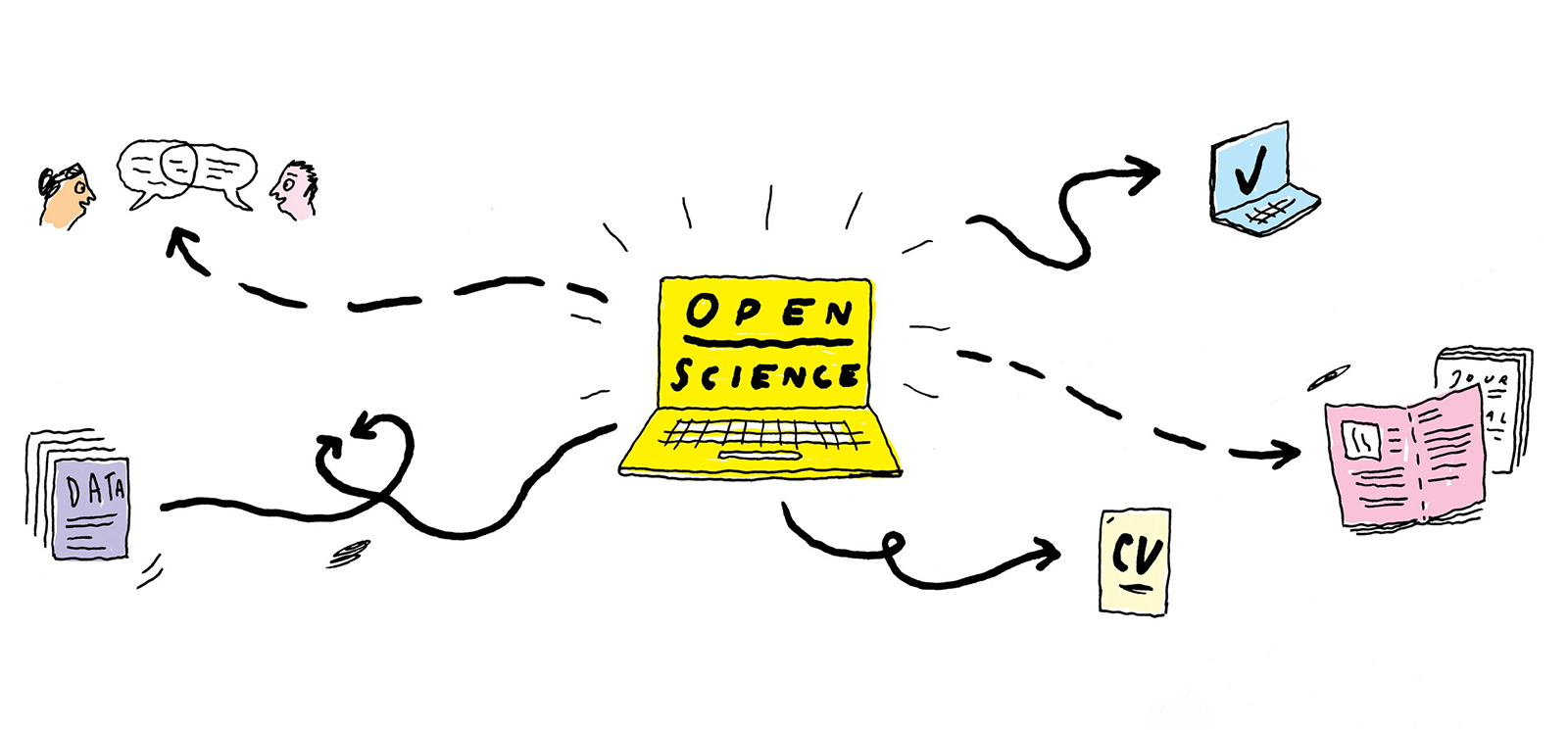Why Open Science?
Three benefits of Open Science for your daily work

1. Citation advantages:
Free access to research findings benefits not only the world of science, but also non-scientific societal actors. After all, we need Open Science if the world wants to master successfully the big challenges facing it today. Authors, too, profit from Open Science, because Open Science carries enormous citation benefits.
Numerous studies have shown that open publishing – whether in an Open Access journal, in a hybrid journal or by self-archiving in an open repository – gives you a citation advantage.
SPARC Europe maintains the Open Access Citation Advantage Service which keeps an updated list of relevant citation studies and abstracts of their findings. So far, the majority of studies have shown that publishing in Open Access gives a significant citation advantage. The citation benefit of Open Access varies across disciplines; increases in citations can range between 36-600 per cent.
Data Sharing is also worth while. Studies which make their data openly accessible are usually cited more often than studies who do not provide access to their underlying data.
Reading tip I: Heather A. Piwowar, Roger S. Day, and Douglas B. Fridsma. 2007. PLOS ONE, doi:10.1371/journal.pone.0000308
Reading tip II: Heather A. Piwowar and Todd J. Vision. 2013. PeerJ, doi:10.7717/peerj.175.
Code Sharing can also lead to more citations, as Patrick Vandewalle showed in 2012 in this study (cost-free version here [pdf]).
Sharing brings benefts. Advance your career by sharing your work with others. Get sharing, get seen.
2. Control your own work:
Many publishers require authors to sign an agreement which transfers copyright. If you sign this contract, your work no longer belongs to you, but to the publisher. The publisher decides who may read, pass on, and reuse the content. Do you think you need to ask the publisher’s permission to reuse your own work? No? Then regain control. Know your rights.
In Germany, you can refer to the Secondary Publishing Right (§38 Abs. 4 UrhG). After twelve months, you are allowed to publish the work a second time online if it complies with the requirements of the Secondary Publishing Right. This means that it must have been published first in a periodical collection which is published at least twice a year, and the paper must have been created during a research activity which was subsidised by at least fifty per cent with public funds. Twelve months after the first publication, the publisher-accepted and reviewed manuscript version may be published. Important in this context: the secondary publication must not generate revenues.
Know your rights. Keep your rights. Decide how your work may be used. Negotiate to keep your rights.
For instance, you can negotiate the terms of your publishing agreement. Do you want to keep your copyright? Do you want to have the right to post a cost-free copy to an open repository? Do you want to reuse the content? Just ask.
3. Receive more funding:
Comply with funders’ requirements and qualify for special bursaries and grants.
Researchers need funds for their projects, for field studies, and for hiring research assistants. Open practices, such as sharing publications or data, play an ever larger role in receiving and securing grants. Open practices can even give you an advantage and qualify you for special grants.
Research funding institutions all over the world demand that research findings, including articles and data, are made openly accessible.
In the EU, the European Commission drives Open Science in its funding programmes. In addition, there are numerous funding activities from national governments and research organisations. The data of the Registry of Open Access Mandates and Policies (ROARMAP) show that the number of such measures has risen continuously worldwide, including in Germany (see this chart http://roarmap.eprints.org/view/country/276.html)
If you want to get an overview of national funders’ guidelines regarding Open Science, you can look them up in the SHERPA/JULIET database recherchieren.
We wish you every success!
